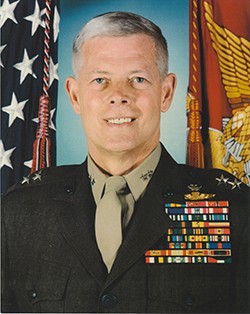Years ago (you could say in dinosaur years), I graduated from OU with a journalism degree. But my dream to become a nationally syndicated sports columnist or Madison Avenue advertising executive was ambushed.
The Vietnam War dominated headlines. War and the draft called many. I joined the Marine Corps to dodge the draft. My dad, a World War II veteran, smiled and asked, “OK, son, now how’re ya gonna dodge Vietnam?” (Oops, didn’t think that through.)
In three combat tours in Vietnam as an infantry Marine, I often asked myself what the practical utility of a journalism degree was. I became more accurate and faster with a rifle than I ever was with a typewriter. I endured more mud and blood than printing ink or copy editing.
Writing a few monthly letters home on rationed cardboard or notebook paper was the only writing I did for years. Reading in combat is hard. I grunted in misery more than spoke. Listening for incoming rockets was a priority, and the thought of communication skills and a journalism career came secondary to surviving.
In time, however, I learned that the ability to communicate gave me critical, meaningful and useful skills and talents. Whether by writing, reading, speaking or listening, the ability to communicate effectively is an asset in any career. OU and my journalism degree prepared me for life and my career more than I ever imagined.
Communication skills are practical and everyday necessities. Whether in your professional or personal life, you succeed or fail based primarily on your ability to communicate and tell your story.
You may think this is an exaggeration, but wait until you’re challenged by tantrums from your toddler or temporarily incorrigible teenage son or in a debate with your spouse. They may present you with greater communication tests than writing a speech or presenting a persuasive decision brief to your boss ever will. At home, just as in your career, you have to communicate well to survive.
In my 43-year Marine career, communicating effectively was virtually a daily requirement. I was blessed with numerous and diverse opportunities and experiences and practically every single one involved communicating with others. You tell your story well and you do well…or fail.
While serving as the senior military social aide to the president of the United States, I coordinated numerous events with the military and social offices. State dinners were the most demanding events, but receptions and parties were fun and less intense.

